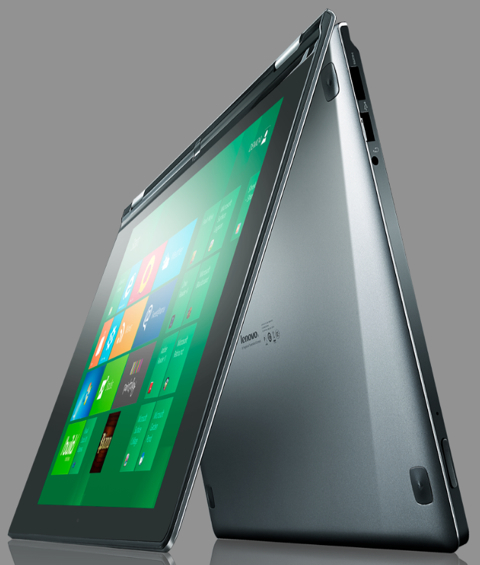CES 2012: Convertible notebooks are back


See also: CES 2012: ZDNet’s news and product coverage | CES 2012: CNET’s news and product coverage
It's important to remember that prototypes, no matter how innovative or well-done, are not real products. Most of them will never be produced for purchase, as companies make them to catch the attention of show-goers and journalists to get their 15 minutes of fame. They sort of throw the prototypes against the wall to see what will stick, if anything.
So far at CES we've seen a few companies try to bridge the upcoming Windows 8 tablet with the Ultrabook. These have included a couple of sliders shown by Intel and Sony, that have a touch tablet screen that slides down over the keyboard to turn a thin laptop into a slate. It's not clear how well this actually works, as the Sony prototype was shut away under a glass display and the Intel model was shown only briefly during the company's press keynote.
The slider type of convertible notebook is nothing new, you may remember the ill-fated HTC Shift that actually came to market. It was ahead of its time, with heavy, clunky hardware and size constraints that prevented it from being popular.
These new prototype sliders look really nice, with super thin laptops that become tablets, ready for Windows 8 to be released later this year. What isn't clear is how these might resonate with consumers, who have never latched onto the convertible notebook type of device in the past. It may be an effort to try to innovate in a largely undefined Windows touch tablet space, and one that won't go anywhere.
The Lenovo IdeaPad Yoga may be the most interesting of the convertible notebooks coming out at CES, as the company actually announced it as a real product. It's not a slider, it uses a unique dual-hinge to allow 360 degree rotation of the laptop screen to be used in a number of configurations, including as a heavy slate.
Convertible notebooks have been around for almost a decade in the Tablet PC world, and have always been a niche product not generating a lot of sales. These new generation convertibles may be a big risk for the companies producing them, as there is no reason to think consumers will feel more warmly about them now than in the past. Maybe that these are thinner and lighter will give them a chance, but a big chance it is.
Related:
- Intel plays up user experience over hardware on Ultrabooks
- CES 2012: Who will connect your future television? With Smart TV, LG fails to break from pack
- What you won’t see at CES: E-book readers
- LG joins Google TV family, while Samsung, Sony, Vizio promise new Google TV devices for 2012
- HDTV shipments with larger screens and LCD to grow in 2012 (report)